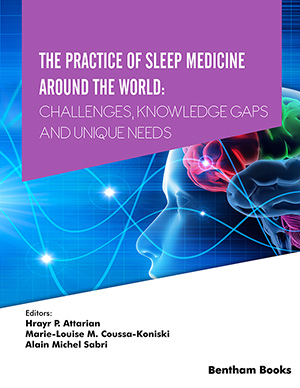Abstract
Although there is no data on the prevalence of sleep disorders in the Syrian population, extrapolating from neighboring countries like Lebanon, Jordan, Iraq, and other Arab and Mediterranean countries, sleep disorders including sleep-disordered breathing are common. Non-Communicable diseases account for two-thirds of deaths. Hypertension, obesity, diabetes, and tobacco smoking are among the highest in the region. There is a strong association between NCDs and sleep-disordered breathing. Most sleep disorders in Syria are undiagnosed and untreated due to the absence of or very low access to sleep specialists and sleep testing, the absence of national policies, and low awareness within the medical community and among the public. The long conflict in Syria, which began in 2011, has resulted in a complex humanitarian emergency, with 6.7 million internally displaced people and 6.5 million refugees out of a total estimated population of 22.5 million. The conflict and the resultant destruction of the health infrastructure have led to a severe public health crisis, which has further impacted the health of the population. There is low access to sleep education, testing, and treatment, mostly in major urban centers, although the demands are increasing. There are ample opportunities to improve the practice of sleep medicine, in spite of the long conflict and war, if local champions, NGOs, national authorities, and medical societies adopted already-available resources, guidelines, and regulations, incorporated creative means and telehealth, and followed the recommendations of the World Health Organization on Sleep and Health.
Keywords: Syria, Sleep medicine, SDB, Insomnia, The Syrian crisis, Conflict, Displacement, Attacks on healthcare, Human resources, War, Post-crisis recovery, NCDs, Telehealth, Online training, Psychological trauma, PTSD, Refugee health, COVID-19, Operation Breathe.






















